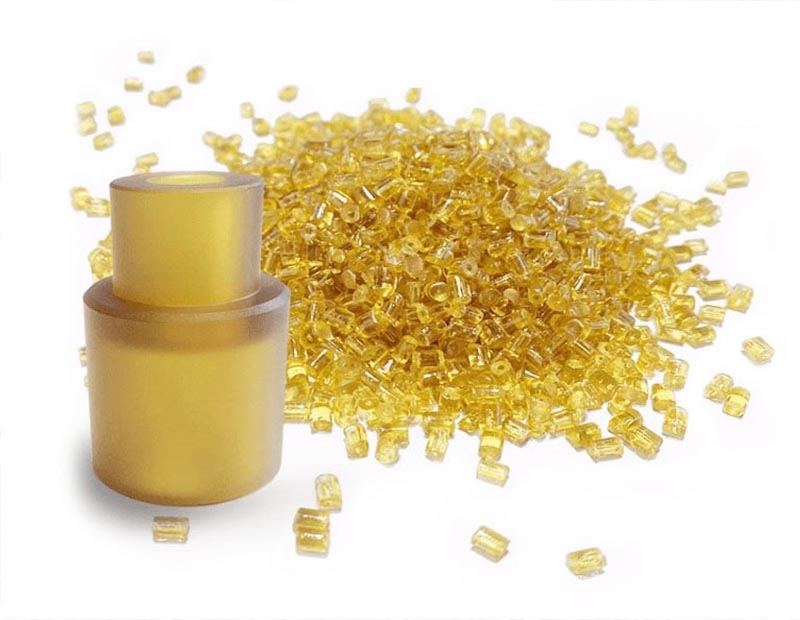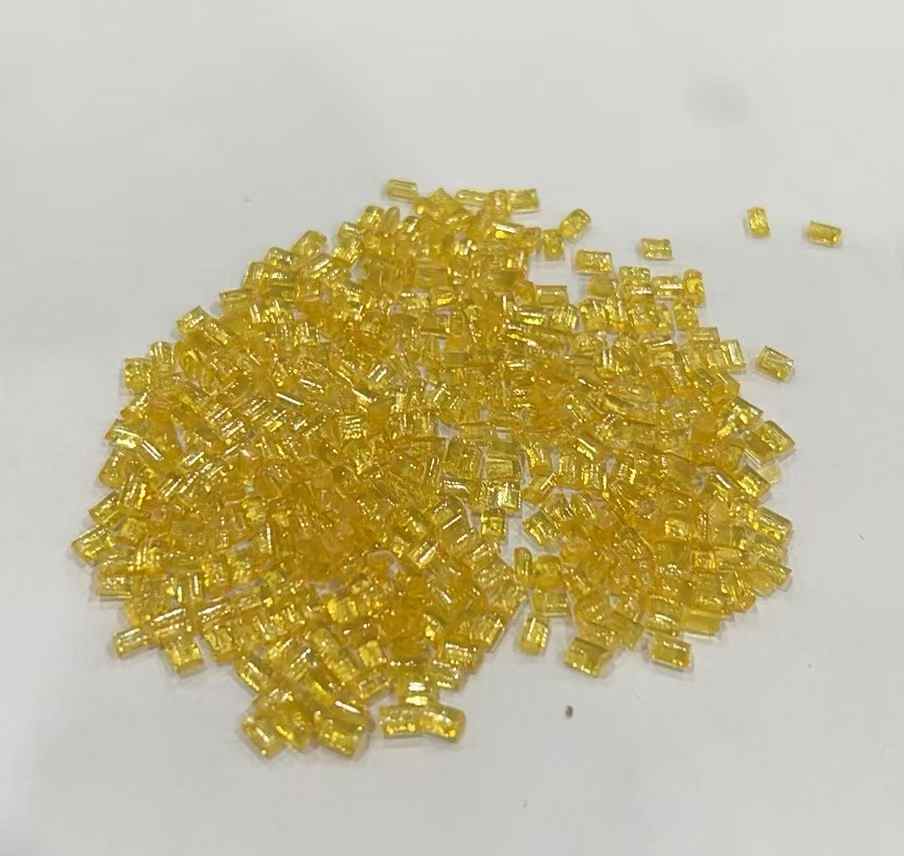
PEI Resin (Polyetherimide) is a high-performance, amorphous thermoplastic polymer known for its exceptional thermal stability, mechanical properties, and electrical insulating characteristics. It is widely used in demanding applications across various industries, including automotive, aerospace, electronics, and medical devices. PEI resin provides superior strength, chemical resistance, and dimensional stability, making it an ideal choice for critical applications requiring high-performance materials.
1.High Thermal Stability: PEI resin has a high continuous operating temperature, typically up to 170-200°C (338-392°F), making it suitable for applications in high-temperature environments.
2.Excellent Mechanical Properties: With outstanding tensile strength, stiffness, and impact resistance, PEI offers durability and long-term reliability.
3.Electrical Insulation: It provides excellent electrical insulating properties, making it ideal for use in electronic components and connectors.
4.Chemical Resistance: PEI resin demonstrates resistance to a broad range of chemicals, including solvents, acids, and bases, making it suitable for use in harsh chemical environments.
5.Flame Retardancy: PEI is inherently flame-retardant, providing excellent safety features in applications where fire resistance is essential.
6.Dimensional Stability: The resin maintains its shape and size even under extreme conditions, ensuring long-term performance and accuracy in precision parts.
Applications:
1.Aerospace: PEI resin is used in aerospace components due to its lightweight nature, high strength, and ability to withstand extreme temperatures.
2.Automotive: In automotive applications, PEI is used for parts such as connectors, sensors, and engine components, where high thermal resistance and mechanical strength are critical.
3.Medical Devices: The material is biocompatible and is commonly used in the production of medical devices such as surgical instruments, diagnostic tools, and drug delivery systems.
4.Electronics & Electrical Components: PEI is ideal for producing high-performance electrical connectors, insulators, and circuit boards, offering superior electrical insulating properties.
5.Industrial Equipment: Due to its chemical resistance, PEI resin is used in industrial applications for parts that come into contact with harsh chemicals or high-stress environments.

1.High-Performance Material: PEI resin is a top choice for demanding applications where durability, strength, and heat resistance are paramount.
2.Reduced Weight: Being lightweight while maintaining high strength, PEI helps reduce the overall weight of products, which is crucial in industries like aerospace and automotive.
3.Cost-Efficiency: While PEI is a premium material, its longevity and performance lead to cost savings in long-term applications due to fewer replacements and maintenance needs.
4.Customizable: Available in various grades, PEI resin can be tailored to meet specific performance needs, such as enhanced flame resistance or better chemical compatibility.
FAQ:
PEI Resin (Polyetherimide) is a high-performance, amorphous thermoplastic polymer known for its exceptional thermal stability, strength, and electrical insulating properties. It is widely used in industries that require durable, high-performance materials, such as aerospace, automotive, medical, and electronics.
PEI Resin has outstanding properties, including:
High thermal stability (up to 200°C continuous use)
Excellent mechanical strength and stiffness
Chemical resistance to acids, bases, and solvents
Good electrical insulation
Flame retardancy
Dimensional stability under extreme conditions
PEI Resin is used in various industries, including:
Aerospace (for lightweight, high-strength components)
Automotive (for connectors, sensors, and engine parts)
Electronics (for electrical components, connectors, and circuit boards)
Medical devices (for biocompatible medical instruments and devices)
Industrial applications (for chemical-resistant parts)
PEI Resin offers similar high thermal and chemical resistance to other high-performance polymers, such as PEEK and PPS, but at a lower cost. PEI is slightly less expensive than PEEK, making it a cost-effective alternative for many applications where performance requirements are high, but the cost is a concern.
PEI Resin can typically withstand continuous service temperatures of up to 170-200°C (338-392°F), making it suitable for applications in high-temperature environments, such as in aerospace or automotive industries.